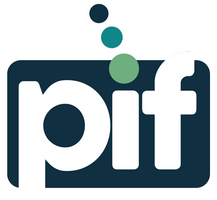Source: CleverCards
Ireland's position as a global innovation hub has led to robust economic recovery since the 2011 recession, with unemployment rates plummeting from a high of 15% in 2011 to under 9% today.
Yet, this success story now faces a significant roadblock: critical skills shortages across key economic sectors like healthcare, construction, and ICT. The Expert Group on Future Skills Needs warns that Ireland must fill 440,000 job vacancies by 2025, with a substantial portion demanding high-level skills. The healthcare sector alone, according to the HSE, requires an additional 11,000 nurses and midwives to keep pace with demand.
Faced with this challenge, Irish employers are taking a proactive approach. To secure the talent they need, many are turning to relocation allowances as a critical tool. These attractive packages incentivise skilled professionals from outside Ireland to relocate, bridging the skills gap and ensuring businesses can thrive.
In this guide, we’ll walk you through what relocation allowances are, how they are used, and how they can benefit both employers and employees. We will also explore some of the challenges and solutions associated with relocation allowances and introduce a convenient and flexible way to do so.
What are relocation allowances and how are they used?
Relocation allowances are financial packages designed to offset the costs incurred by employees who relocate for work. These allowances are typically negotiated as part of the employment contract and can vary significantly based on the distance of the move, the employee's seniority, personal circumstances, and the specific requirements of the role.
Here are some of the most common types of employee relocation allowances offered by Irish employers:
Relocation Lump Sum
A relocation lump sum is a fixed amount of money provided by an Irish employer to help an employee offset the costs associated with relocating for work. This approach offers flexibility as the employee can decide how to allocate the funds. However, it's important to note that lump-sum payments are generally considered taxable income in Ireland.
Reimbursement
Under the reimbursement model, employers compensate employees for relocation expenses after those costs have been incurred, typically up to a predetermined limit. Employees are expected to submit detailed receipts or invoices as proof of expenditure. While this ensures accurate reimbursement for the employee and potential tax benefits, the process can be administratively complex for both parties and employees might need to manage initial relocation costs out-of-pocket.
Direct Billing
With direct billing, the employer assumes responsibility for paying relocation-related service providers (e.g., moving companies, airlines, temporary housing agencies) directly. This eliminates out-of-pocket expenses and administrative tasks for the employee. Additionally, direct billing offers the employer greater control over costs and the relocation process.
Are Relocation Allowances Tax-Free in Ireland?
Depending on the nature and length of a relocation or assignment there are a variety of tax-free expenses/allowances that may be provided to employees.
According to Revenue.ie:
You can repay your employee’s expenses for removal and relocation tax-free if it costs your employee money to:
- Move to a new employment location.
- Take up their employment.
These expenses will be tax-free if:
- There are actual removal and relocation expenses.
- The expenses are for a reasonable amount.
- The payment of the expenses is properly controlled.
- Moving house is necessary.
For example, expenses that can be reimbursed without giving rise to a charge to tax include the removal and transport of furniture, storage costs, the costs of temporary accommodation, and solicitor’s fees and stamp duty costs associated with moving.
How can relocation allowances benefit employers and employees?
Relocation allowances can have positive impacts on both employers and employees:
For companies, relocation allowances help:
- Talent Acquisition: In sectors experiencing skills shortages, relocation allowances make a company's job offers more attractive, expanding the available talent pool both domestically and internationally.
- Retention: Demonstrating support for relocating employees builds loyalty, reducing turnover costs that can hinder growth.
- Market Expansion: Relocating key personnel strategically facilitates business growth into new Irish regions or global markets.
- Diversity & Innovation: Attracting employees from diverse backgrounds fosters fresh perspectives and problem-solving approaches, driving innovation.
For employees, relocation allowances help:
- Reduce Financial Burden: Relocation allowances alleviate the significant expense of moving, making the career opportunity more feasible.
- Increase Satisfaction: Feeling supported by their employer during this transition boosts morale, potentially leading to higher engagement and productivity.
- Smooth Adjustment: Financial assistance allows employees to focus on settling into their new role and community, fostering a sense of belonging.
Challenges Associated with Relocation Allowances
Implementing relocation allowances, while beneficial, can present employers with some key hurdles:
Tax Considerations: Irish tax regulations surrounding relocation allowances can be complex.
Cost of Living Variance: Employees may face unexpected costs as allowances might not fully account for differences in the cost of living between their previous location and their new destination in Ireland.
Temporary Needs: Securing housing in Ireland, particularly during the current housing crisis, and managing initial living expenses can be stressful.
Currency Exchange (if applicable): Fluctuations in exchange rates and transfer fees can diminish the intended value of relocation allowances.
Using Digital Prepaid Mastercards as a Solution
Digital prepaid Mastercards offer a modern, streamlined approach to managing relocation allowances, eliminating many of the traditional hurdles and offering advantages at every step of the relocation journey.
Instant & Accessible: A CleverCards prepaid Mastercardcan be created and sent via email in minutes, without any paperwork, bank accounts, or physical cards. Employees can receive and activate their prepaid Mastercards on their smartphones, and start using them right away. This saves time and hassle for both parties and eliminates delays often caused by physical card delivery or complex bank account setups.
Top-Ups & Flexibility: If unexpected costs arise or the relocation timeline extends, employers can easily add additional funds to a CleverCards prepaid Mastercard, ensuring employees aren't left scrambling for resources during a stressful time. This adaptability provides essential financial support and demonstrates the employer's commitment to a smooth transition for their relocating employee.
Targeted Spending: A prepaid card can be configured and customised for specific purposes, such as temporary accommodation, transportation, or groceries. Employers can set the amount, duration, and category of each prepaid card, and monitor and manage them through a dashboard. This grants control and transparency over the relocation process and helps employers track and optimise relocation budgets and expenses.
Relocation Allowances Are a Strategic Investment in Growth and Talent
Relocation allowances represent more than just financial support for employees; they symbolise a company's investment in its own future. So, by fostering a welcoming and supportive relocation process, employers not only secure top talent but also lay a powerful foundation for retention and long-term success.
While traditional relocation allowance methods present their own complexities, the rise of digital solutions offers significant advantages. Companies seeking to streamline administration, offer their employees flexibility and maintain transparent control over relocation budgets, will benefit from adopting digital prepaid Mastercards, such as CleverCards.
Using CleverCards makes implementing relocation allowances much simpler, ensuring that the focus remains on successful transitions and a thriving Irish workforce.







